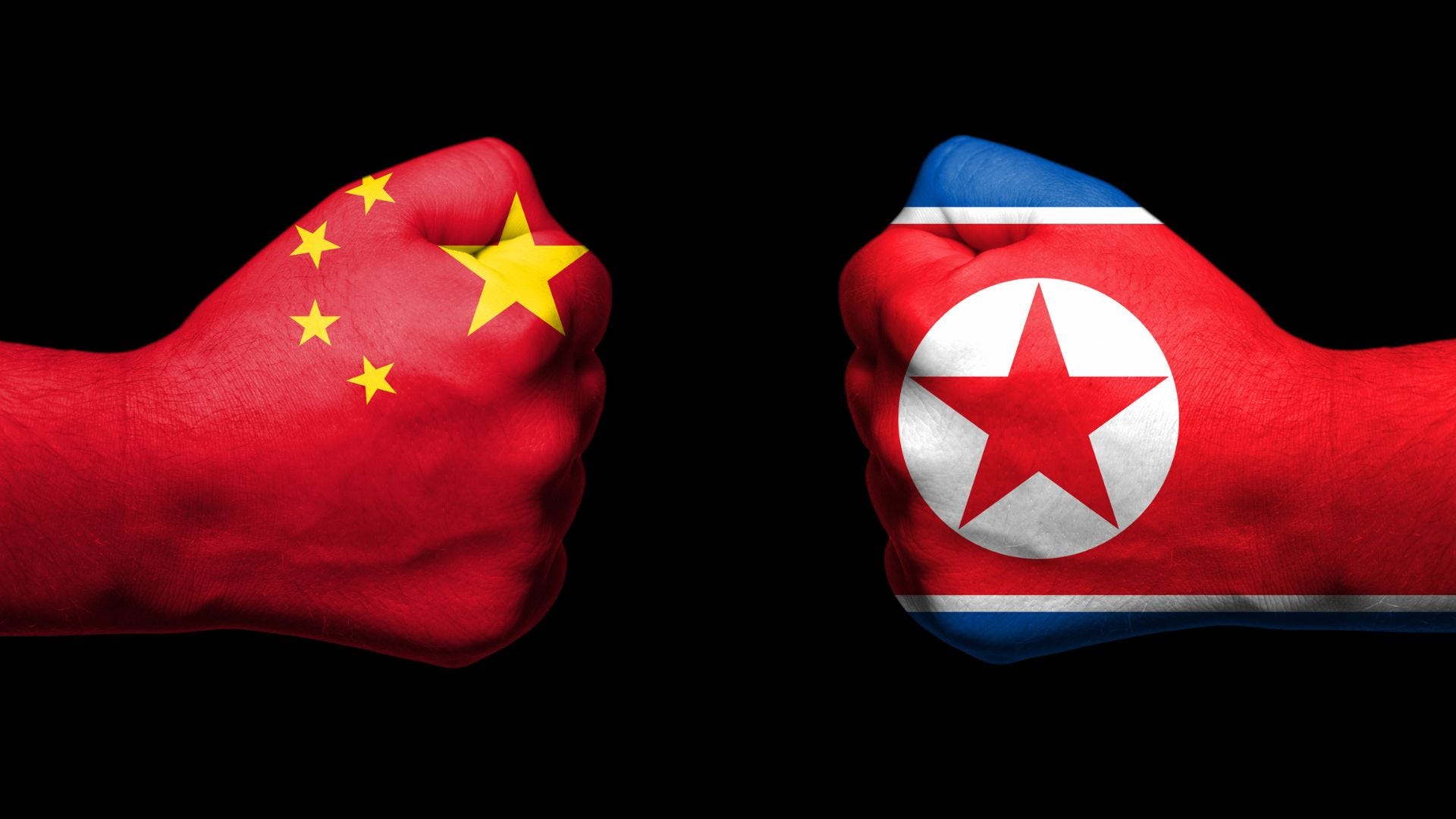North Korea’s Rare Protest Against China's Telecom Plans: A Sign of Growing Friction?
North Korea has shifted focus towards strengthening defense ties with Russia, culminating in a strategic partnership treaty between Kim Jong-un and Vladimir Putin in June, reportedly displeasing China
In a rare public expression of discontent, North Korea has voiced its opposition to China's plans to expand telecom infrastructure along their shared border. This development signals potential friction in the otherwise tight alliance between the two neighbors. Given the secretive nature of Pyongyang and the usual harmony in Sino-North Korean relations, this open criticism is noteworthy. It raises questions about the underlying dynamics between the two countries and whether this incident could hint at broader issues within their relationship.
North Korea’s rare public protest against China’s telecom plans near their shared border is a significant development that could signal growing friction in their relationship. While the immediate issue is likely manageable, it underscores the delicate balance of power and influence between the two countries.
Telecom Dispute: What Happened?
The conflict revolves around China’s initiative to enhance its telecom infrastructure in the northeastern region near the North Korean border. According to reports based on email records accessed by reporters, North Korea also complained that China failed to consult it about the plans in advance. This is seen as a sign that the two countries long known for close economic ties may have a problem in bilateral communication.
The dispute occurred after the Geneva-based International Telecommunication Union made the information about terrestrial networks available to relevant countries in June, including China’s plan to set up 191 facilities for purposes such as FM radio broadcasting.
This move, according to North Korea, poses a threat to its national security and sovereignty. The North Korean government has expressed concerns that these developments could facilitate espionage and enable greater surveillance within its territory.
North Korea said that some of the proposed radio stations are "located in the border areas" with the country and it expressed "objection to the registration of those FM stations" in the email dated July 24. Accordingly to Pyongyang, of the 191, 17 stations including those in Dandong, a border city in northeastern China, could cause "serious interference," it said.
Apart from the potential for increased Chinese surveillance, Pyongyang may also be worried about the potential for social risks posed by the expansion of communication networks. Fears that improved telecom connectivity along the border could enable its citizens to access external information, thereby undermining the regime’s tight control over media and communication.
A Historically Close Relationship
China and North Korea share a complex history, characterized by ideological alignment, economic cooperation, and mutual strategic interests. China is North Korea’s most important ally, providing essential economic support and acting as a diplomatic buffer against international pressures, particularly from the United States and its allies. Despite occasional disagreements, Beijing has consistently supported Pyongyang in international forums and has resisted efforts to impose crippling sanctions on the North.
However, the relationship has not been without its strains. North Korea’s nuclear ambitions have periodically tested China's patience, leading to temporary cooling of relations. Nonetheless, both countries have historically managed to navigate these tensions without allowing them to fundamentally alter the strategic alignment of their relationship.
While this year marks the 75th anniversary of relations between North Korea and China, its long-time economic benefactor, But Pyongyang has sought closer ties with Russia, especially in the defence sector, through activities such as sealing a strategic partnership treaty in June between its leader Kim Jong-un and President Vladimir Putin, a move which is said to have displeased China.
Why Is This Incident Significant?
North Korea’s public criticism of China’s telecom plans is significant for several reasons. First, it is unusual for Pyongyang to openly challenge Beijing on any issue, given the latter's pivotal role in the former’s survival. This suggests that North Korea perceives the telecom expansion as a serious threat, one that outweighs the potential diplomatic fallout.
Second, this incident highlights the broader security concerns that drive North Korea’s domestic and foreign policies. The regime's survival depends on its ability to control information and maintain an iron grip on its population. Any external influence, particularly one as pervasive as Chinese telecom networks, is viewed with suspicion. This could be indicative of North Korea's increasing paranoia about external influences undermining its control.
Lastly, the protest could reflect a deeper discomfort within North Korea about China's growing influence. As China’s economic and technological power continues to expand, there may be concerns in Pyongyang about becoming overly dependent on Beijing. This incident could be a subtle signal that North Korea is keen to assert its sovereignty and prevent China from exerting too much influence over its internal affairs.
Potential Implications
The long-term implications of this incident for Sino-North Korean relations remain uncertain. While it is unlikely to lead to a significant rift, it could mark a turning point in how the two countries manage their differences. North Korea’s assertiveness might encourage China to be more cautious in its dealings with Pyongyang, particularly on sensitive issues like border security and communication.
On the other hand, this incident could also prompt China to reassess its approach to North Korea. Beijing might seek to address Pyongyang’s concerns through diplomatic channels, potentially leading to negotiations or adjustments in its telecom plans. Alternatively, China could choose to downplay the incident, prioritizing broader strategic interests over a minor border dispute.
As China continues to expand its global influence, North Korea’s reaction serves as a reminder that even its closest allies may not always be comfortable with its growing power. How Beijing and Pyongyang navigate this incident will provide important insights into the future trajectory of their relationship.





